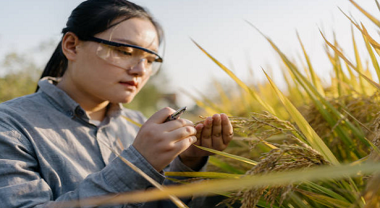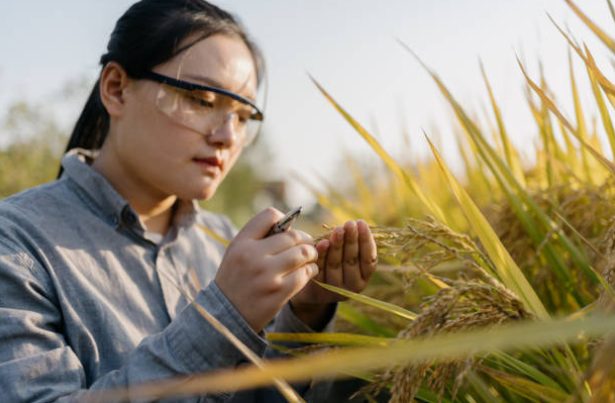Examining the Relationship between IPR and Food Security
Food security: An overview
Essentially, food security refers to the social, physical, and economic access to safe and nutritious food at all times which will ensure a positive nutritional impact on all people across the world. Primarily, food security is a culmination of three elements: availability, access, and utilization. Firstly, it is imperative that food is available consistently in sufficient quantities through stock production, trade, or aid. Secondly, in order to ensure food security, it is pertinent that all people have access to adequate quantities of food. Lastly, food utilization refers to the nutritional impact that food may have on people. This includes cooking, hygiene practices, food, and its impact on health and food sharing practices. Food security plays a pivotal role in the development of a nation. For one, it boosts the agricultural sector which results in having control over food prices. Additionally, the development of the agricultural sector may also translate to economic growth and job creation which leads to poverty reduction. As mentioned earlier, strong food security may have a positive nutritional impact on the citizens of a particular region. Consequently, this leads to improved health and healthcare conditions.
[Image Source: gettyimages]
Food security and Intellectual Property Rights
Today, there exist several impediments to ensuring food security. Climate change is one of the grave concerns that plague the agricultural industry. The consequences of climate change, which may include droughts, famines, and floods often retard growth in the agricultural industry. This retardation may severely impact the food security of the region as well. Apart from climate change, issues such as the growth of the biofuel market due to which agricultural lands are destroyed or exploited as well as unmonitored nutrition programs may also threaten the food security of a nation. In order to secure food security across the globe, is it imperative to create and develop agricultural solutions? Intellectual Property systems that are linked to such agricultural solutions may result in a consistent influx of monetary incentives. Such monetary incentives are necessary for further research and development in the realm of food security. As far as the presence of IP in the agricultural sector is concerned, patent laws are applicable for inventions that are created in the agricultural sector. Moreover, plant variety protection rights create an effective system that would help protect the protection of plant varieties as well the rights of farmers and breeders.
Patents and food security
-
Genetically modified crops or organisms and patent protection
As discussed earlier, several issues such as climate change, pests, or natural disasters may critically impact the food security of a particular region. The need to ensure food security, despite the natural causes that may impede the same has resulted in the creation of genetically modified crops and organisms. Genetically modified crops or organisms refers to the usage of genetic engineering to control the genetic change that is induced into an organism. This may lead to the creation of crop yields that are often resistant to pests, natural disasters, or diseases. One of the biggest advantages of genetically modified organisms and crops is the resultant enhancement in food security. Genetically modified organisms or crops are a product of human intellect and hence, are patentable. A patent provides an individual or a company with exclusive rights that may prevent unauthorized entities from creating, using, or commercially exploiting the invention for a limited period of time. Today, patent laws are accommodative of protecting genetically modified organisms in order to incentivize the inventors behind such innovations in the agricultural sector. From the initial date of filing, a plant patent (patents pertaining to genetically modified plants) may protect the innovation for about 20 years.
The genetic engineering and biotechnology sector is an industry that is largely research-driven. Research and development in such sectors require immense monetary support. Patenting of technologies behind genetically modified organisms or crops will ensure a constant flow of monetary incentives that can be reinvested in further research and development. Research and development in the field of biotechnology and genetic engineering will, in turn, fuel the creation of crop and organism varieties that are resistant to the key issues that impact food security in today’s day and age. Thus, it can be concluded that the patenting of genetically modified innovations in the agricultural sector may positively impact food security.
-
The Protection of Plant Varieties and Farmers’ Rights Act, 2001
The Protection of Plant Variety and Farmers Rights Act, 2001 is a provision that permits the protection of plant varieties and the rights of farmers and plant breeders. The Act fuels further research and development in the area of farming and cultivation. The IP rights that are bestowed upon an inventor under the PPVFR Act can be broadly categorized into two parts. The first set of rights may subsist on the variety of the plant type (which may include crops or vines). The latter aspect that the PPVFV Act deals with is the denomination assigned to it by a breeder. Under the Act, field crops can be protected for a period of 15 years and vines can be protected for over 18 years. The rights that are enumerated under the Act would ensure that farmers are adequately compensated in the form of monetary benefits if a particular crop fails to perform well. Moreover, the Act also specifies civil as well as criminal remedies to breeders if a particular variety is not made available to the general public at a reasonable price. One of the most prominent features of the PPVFRA is the conferring of the ‘Farmer reward’ or the ‘Farmer recognition’. These awards are provided to farmers who actively attempt to ensure the conservation of genetic resources and other rare varieties through preservation methods. The active conservation of plant and animal varieties may favorably impact food security goals. Several studies have indicated that rare crop varieties are imperative to increase food supply in the near future. Thus, the conservation of the same which is facilitated through the PPVFR Act may help in meeting food security goals. Thus, it can be inferred that IP laws play a crucial role in the protection and conservation of crop varieties. The protection of crop varieties may play a crucial role in combatting food security issues in the coming years. Moreover, a constant influx of monetary incentives through patents that are granted for agriculture-related inventions would ensure continued research and development in the field of biotechnology. This research and development are crucial for creating effective ways to combat food security issues that nations are facing today.
Author: Sanjana, a BBA LLB student of Symbiosis Law School (Hyderabad), in case of any queries please contact/write back to IP And Legal Filings at support@ipandlegalfilings.com.




